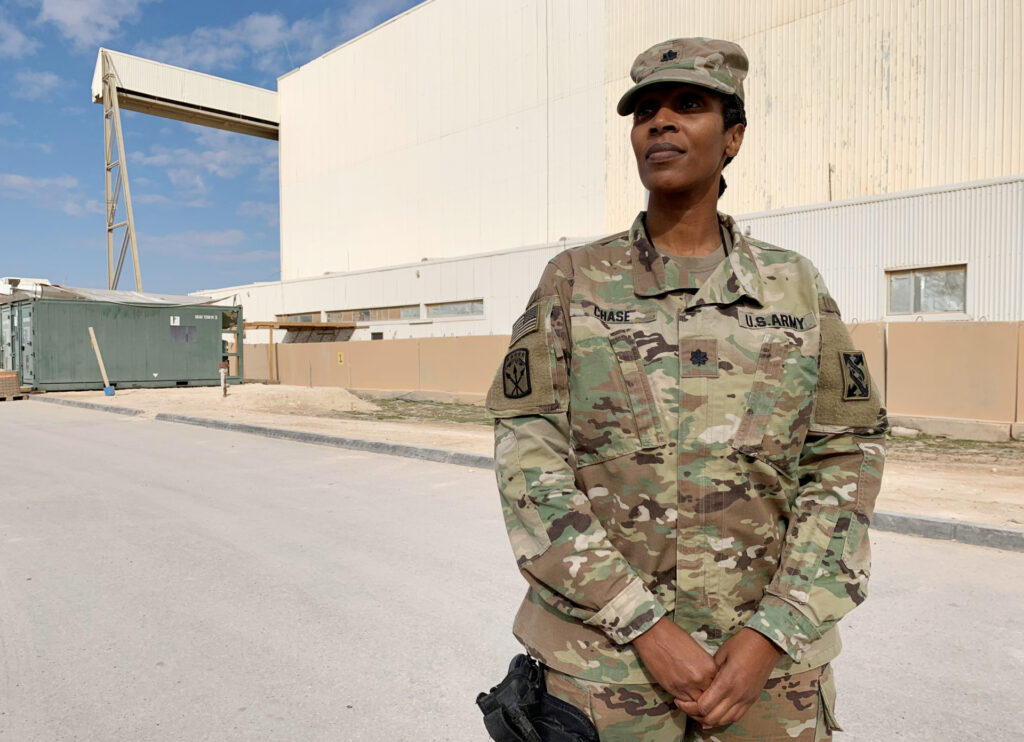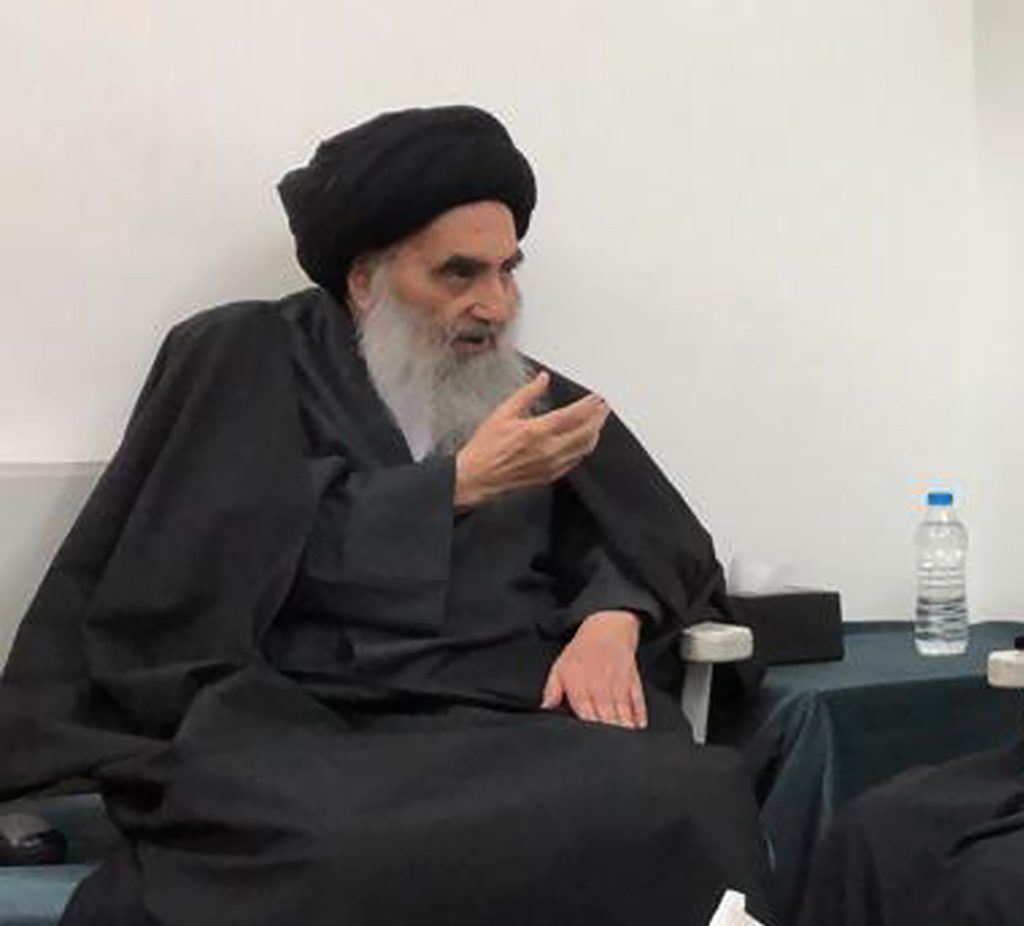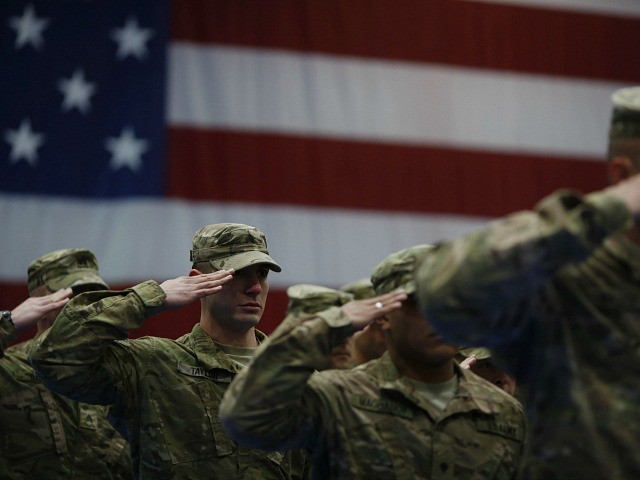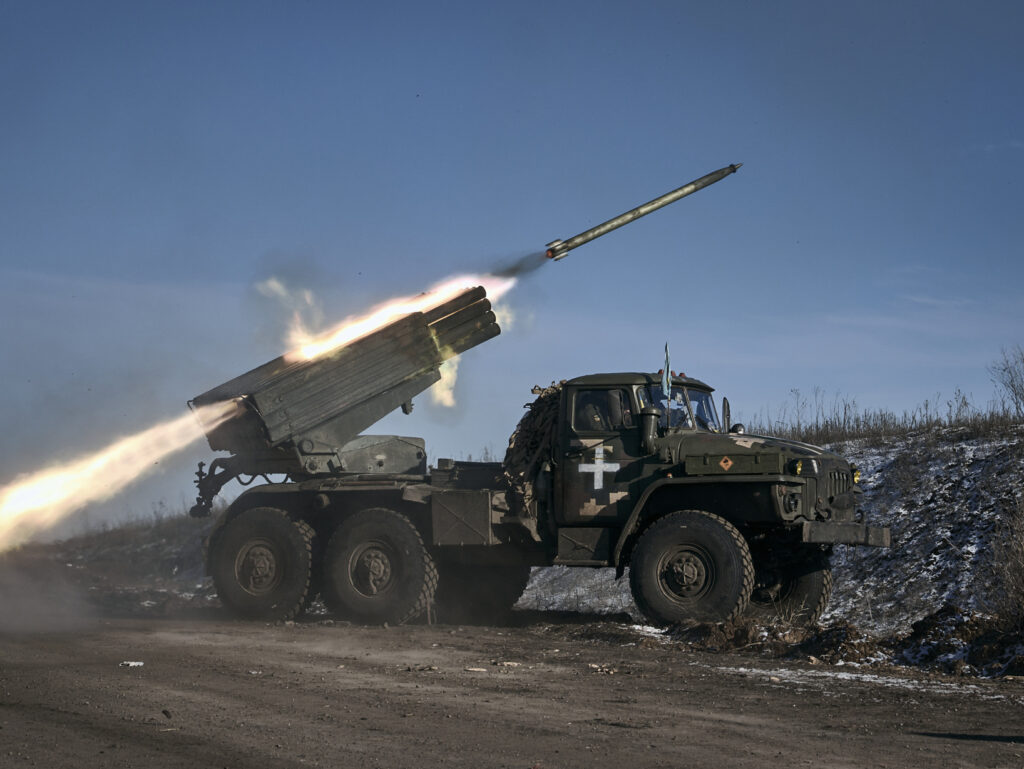The U.S. Central Command (CENTCOM) said on Tuesday that two dozen American military personnel were injured during drone attacks by Iran-backed militia groups in Iraq and Syria last week.
CENTCOM told NBC News that 20 United States personnel suffered minor injuries during the October 18 drone attack on the al-Tanf military base in southern Syria. All of the injured personnel were able to return to duty, and the base suffered no significant damage.
Four more American military personnel were injured during two drone attacks on United States and coalition forces at the Ain al-Asad airbase in western Iraq on October 18. All four of the injured personnel were able to return to duty. In one of those attacks, debris from an intercepted drone destroyed a small aircraft hangar.

A picture taken on January 13, 2020, during a press tour organised by the U.S.-led coalition fighting the remnants of the Islamic State group, shows Lieutenant-Colonel Antionette Chase at Ain al-Asad airbase in the western Iraqi province of Anbar. (Ayman Henna / AFP via Getty)
CENTCOM’s remarks to NBC were the first public statement about casualties incurred during attacks by Iranian proxy forces since the beginning of the Israel-Hamas war. An umbrella group for the militias calling itself the “Islamic Resistance in Iraq” (IRI) claimed it was able to kill several American soldiers with its attacks, but the Pentagon insisted there were no fatalities.
Pentagon press secretary Brig. Gen. Pat Ryder said on Tuesday there were at least ten attacks against United States and coalition forces in Iraq between October 17 and 24, plus three in Syria, using “a mix of one-way attack drones and rockets.”
“We know that the groups conducting these attacks are supported by the IRGC and the Iranian regime,” Ryder said, using the acronym for Iran’s Islamic Revolutionary Guard Corps, a designated terrorist organization. He declined a request from reporters to name the Iraqi and Syrian militias that perpetrated the attacks.
“What we are seeing is the prospect for more significant escalation against U.S. forces and personnel across the region in the very near-term coming from Iranian proxy forces and ultimately from Iran,” he said.
Ryder said Iranian proxy forces are attempting to “destabilize” Iraq and Syria and “divert attention” from the atrocities perpetrated by Iran’s client Hamas. He said the Biden administration’s priority is to avoid escalation, but did not rule out reciprocal action against Iran and its agents.
“We will always maintain the inherent right of self-defense. And if there is a response, should we choose to have one, we would do that at a time and place of our choosing,” he said.
On Tuesday, the Islamic Resistance in Iraq claimed responsibility for another missile attack on the Ain al-Asad airbase, pointedly ignoring warnings from the Biden administration and the Iraqi central government. As in most of its previous statements, the IRI claimed its attacks “directly hit their intended objectives.”
An Iraqi security source said the latest attack involved Grad rockets, a Soviet-designed multiple-launch rocket system that is considerably more powerful than the primitive and inaccurate Katyusha rockets employed in previous militia assaults. The source claimed at least one Grad launcher was captured by Iraqi security forces after the attack.
An anonymous member of the Iraqi parliament said on Tuesday that some militia leaders agreed to “de-escalate” during meetings with Iraqi government representatives on Sunday and Monday, but some of the major Iran-backed groups did not even bother to attend the meetings.
The same parliament member said the Iraqi government has been told it could face U.S. sanctions if it does not take stronger action against the militias, and that U.S. forces will respond if future attacks inflict serious casualties on American or coalition personnel.
U.S. Secretary of State Antony Blinken on Tuesday urged Iraqi Prime Minister Mohammed Shiaa al-Sudani to “pursue those behind the attacks and fulfill Iraq’s commitment to maintain security.”
The State Department said Blinken also discussed the humanitarian crisis in Gaza, and Blinken “conveyed his appreciation to the Prime Minister for Iraq’s efforts to deliver humanitarian aid to civilians.”
A spokesman for the Iran-backed Kataeb Sayyid al-Shuhada militia said in an Iraq television interview on Monday night that since Iraq’s highest Shiite cleric, Grand Ayatollah Ali al-Sistani, has condemned Israel’s actions in Gaza and called for jihad against Israel and the United States, Iraqi Shiite fighters believe attacks against Americans have been granted a religious seal of approval.

Shiite cleric Grand Ayatollah Ali al-Sistani (Office of Grand Ayatollah Ali al-Sistani, via AP, File)
Iranian state media has enthusiastically endorsed the Iraqi and Syrian militia attacks. On Tuesday, the Tehran Times described the rocket and drone strikes as a justified response to “Israeli war crimes,” including the “bombardment of residential areas, schools, mosques, and hospitals in the Gaza strip.”
WATCH: Media Repeat Hamas Propaganda on Hospital Blast; Israel Shows Evidence Terrorist Rocket Responsible
Joel B. Pollak / Breitbart NewsThe Tehran Times praised Shiite militias for standing with the “Palestinian nation,” and claimed the presence of U.S. and coalition forces in Iraq is “illegal,” so they are fair targets.
“We punish criminals like this,” Iran’s proxy terrorist organization Hezbollah said on social media to endorse the Shiite militia attacks, as approvingly quoted by the Tehran Times.


COMMENTS
Please let us know if you're having issues with commenting.